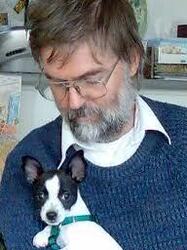Barry Kauler Explains That Puppy Linux and EasyOS Exclude Systemd to Keep Things Simple
Last month: Simple is Better, Simplicity is Power
Puppy Linux, which has a rich history as a distro and as a community, does not use systemd. In fact, Puppy Linux on systemd (considered only an experiment) is something old. I used Puppy Linux on an old PC about 15 years ago. I later replaced it with pre-systemd Debian.
Barry Kauler's Puppy Linux is in the community's hands. He now focuses on EasyOS and more.
Understandably, some people "doubt Barry would ever go over to systemd, because systemd is all about eliminating scripts".
In Barry's own words (updated a month ago, September 16th): "EasyOS was born in January 2017, and since then there have been bits and pieces written here and there about how and why it is different from other Linux distributions. This includes some rather technical descriptions. What is needed is a simple plain-English list, so that anyone can get a quick idea of what EasyOS is all about."
Further down it says: "pup_event service manager: Easy uses the Busybox 'init' system, no systemd! To provide management of services with dependencies, there is pup_event, a simple extension to the init-system. For example, a daemon could be brought up only when network is active. pup_event also provides an extremely flexible and simple IPC mechanism, pup_event_ipc. [...] What is not in Easy: No systemd, and it is also worth noting what else Easy does not have: policykit, pam, avahi, elogind. The Kirkstone-series does have pulseaudio, and "putting the toe in the water" experimenting with pipewire." █


